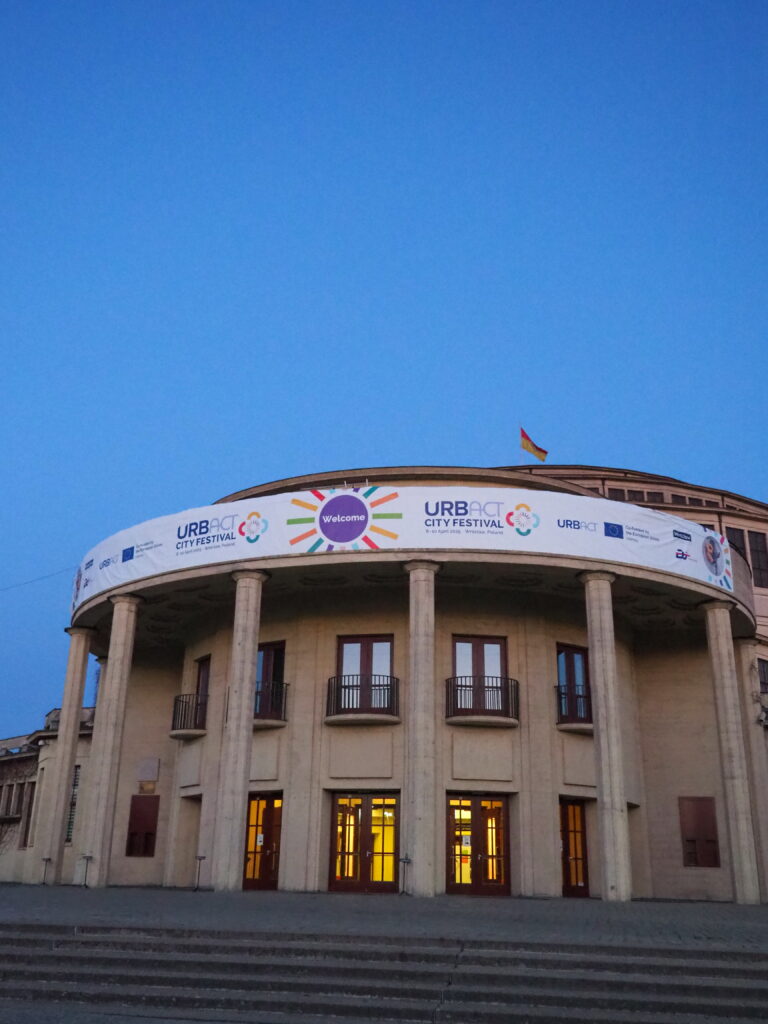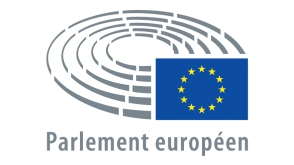
From April 8 to 10, 2025, the city of Wrocław, Poland, hosted over 600 participants from across Europe for the URBACT City Festival, a flagship event of the URBACT programme celebrating urban innovation and the exchange of best practices. An inspiring gathering in the UNESCO-listed Centennial Hall, full of connections, ideas, and enthusiasm.
So, what exactly is URBACT?
URBACT is a European territorial cooperation programme funded by the European Regional Development Fund (ERDF). Since 2002, it has supported cities of all sizes in developing innovative and sustainable solutions to urban challenges through:
- the creation of transnational city networks (action, transfer or innovation),
- exchange of good practices,
- capacity-building (training, tools, mentoring),
- and visibility for successful local initiatives, through events such as the City Festival.
The goal: to help cities become more sustainable, inclusive, participatory and attractive.
URBACT is based on a simple but powerful idea: the best urban ideas often come from other cities, and peer learning is a catalyst for action.
Centre-Ville en Mouvement meets the pioneers of urban renewal
At the heart of the City Festival, Centre-Ville en Mouvement, through its European Observatory of City Centres, explored some of Europe’s most inspiring urban regeneration initiatives — especially those addressing the revitalisation of city centres.
This participation reflects our commitment to connecting cities to dynamic European projects, enabling them to access EU funding, join peer learning networks, and develop practical local solutions in areas such as mobility, housing, culture, logistics, and urban transitions.
Our favourite discovery: Refabrication in Flöha (Germany)
Among the many initiatives showcased in Wrocław, one truly stood out: the city of Flöha (10,500 inhabitants, Saxony, Germany) and its project “Refabrication: Invention of a City Centre.”
A cotton mill reborn as a city centre
For decades, the “Alte Baumwolle” (Old Cotton Mill) sat at the heart of Flöha — a vast, derelict industrial site. In 2001, the city decided to acquire and repurpose the 65,000 m² estate, creating from scratch what Flöha had never truly had: a central urban core.
Based on a 2006 masterplan, Flöha has progressively transformed the historic site into:
- modern housing in restored factory buildings,
- a brand new City Hall (opened in 2024),
- a library, cultural centre, kindergarten, and shops,
- a museum set to open in 2025,
- a market square currently under development,
- and new pedestrian and transport links connecting the city’s neighbourhoods through the revitalised centre.
A collective and sustainable transformation
This long-term project is guided by a participatory and integrated approach, involving citizens, local associations, elected officials, service providers, and private investors. It is financed through a mix of local, regional, federal, and EU funds — a powerful example of how URBACT and other EU programmes can support ambitious transformation in small cities.
The project directly contributes to key urban agendas: the UN Sustainable Development Goals, the EU Urban Agenda, and the New Leipzig Charter, through its commitment to environmental sustainability, social cohesion, and economic vitality.
Why this matters for European cities
Flöha demonstrates that even small towns can:
- leverage industrial heritage to create vibrant urban hubs,
- build a city centre from scratch, tailored to local needs,
- empower citizens and stakeholders in the planning process,
- and successfully mobilise EU funding for impactful local projects.
This initiative offers strong inspiration for many European cities facing similar challenges: empty storefronts, derelict sites, weakened urban cores, or the need to foster local identity and cohesion.
Join URBACT: the new call is open!
URBACT’s call for Transfer Networks is now open (until May 30, 2025), giving cities the opportunity to:
- join a network of 6 to 10 European cities,
- collaborate over two years on a concrete local project,
- benefit from European support and tailored methodology,
- and gain European exposure for their initiatives.
Interested in applying? Want to learn more?
More information

